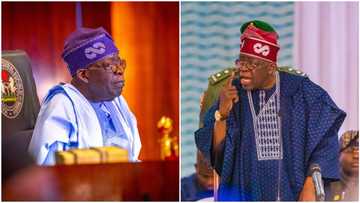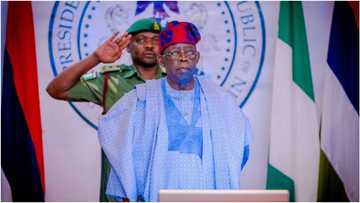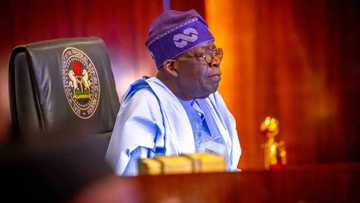4 Extraordinary Issues President Tinubu Needs To Address Urgently
The few weeks of President Bola Ahmed Tinubu's administration have indeed not been rosy for both Nigeria's 16th leader and its citizenry.
Unlock the best of Legit.ng on Pinterest! Subscribe now and get your daily inspiration!
At the moment there are major issues hanging around the neck of the federal government which has brought untold hardship on the people and led to a series of questions with Nigerians craving for answers from President Tinubu.
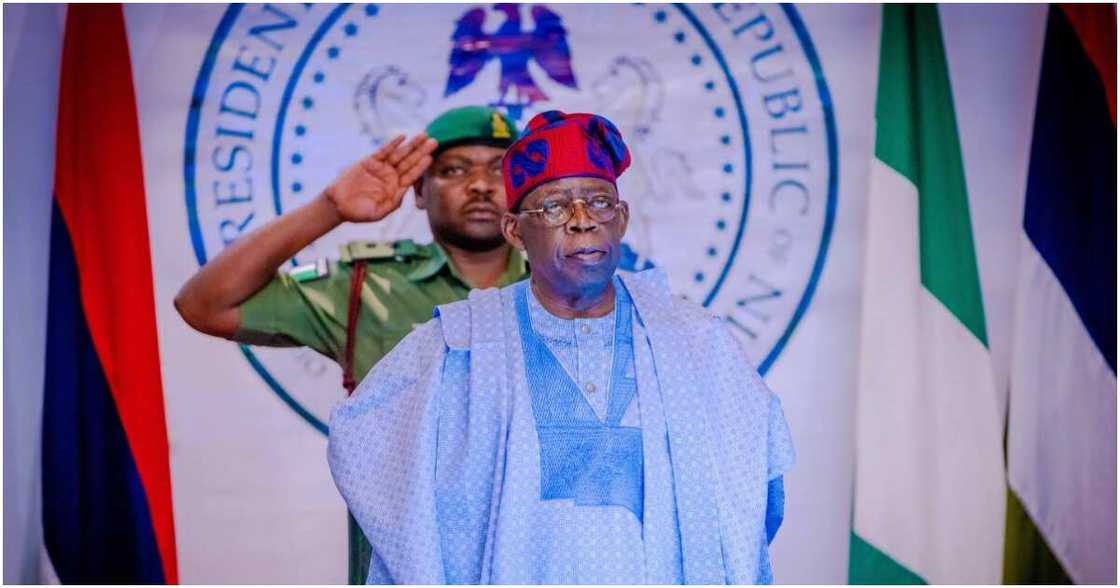
Source: Facebook
President Tinubu's earlier promise
The 29th of July, 2023, will make it exactly two months since President Bola Tinubu was sworn in as Nigeria’s 16th president. Right from the podium, while delivering his inaugural speech, the president sent a clear message to Nigerians that suggested it would not be business as usual.
From his speech, he created the impression that he was ready for business and not the usual kicking of the can down the road that the country has experienced over the years.
PAY ATTENTION: Follow us on Instagram - get the most important news directly in your favourite app!
From the thorny issue of petrol subsidy and the decision to unify the various foreign exchange rates in the country, Tinubu made it clear that he was on a mission to steer the economy towards a growth path and wean it off perennial bottlenecks.
However, while some of his policies have been welcomed and have excited the financial markets and investors, they have also been greeted with attendant challenges, including spiralling inflation, increased poverty level and job losses.
Major issues affecting Tinubu's govt in less than two months in office
In view of the above, Legit.ng highlights major issues President Tinubu needs to address and why;

Source: Facebook
1. Tinubu's ministerial list
To sustain the speed and momentum of a number of the far-reaching decisions taken by President Bola Tinubu from his first day in office, also, he needs to get his cabinet in place as quickly as possible.
This particular list has led to conversations within the major parties in the country and even the ruling party, the All Progressives Congress (APC), members are divided regarding who gets key positions in Tinubu's cabinet, going forward.
Based on the new law put in place by his former President Muhammadu Buhari, President Tinubu and all the newly elected state governors are required to submit the names of their ministerial nominees or commissioner nominees to the National/State Assemblies for confirmation within 60 days of taking the oath of office.
This implies that the president must submit the lists of nominees for ministers before the end of July.
But as it stands, there is a noticeable delay regarding the submission of the ministerial list in which sources noted that the unveiling of the list at the Senate recently, was due to some last-minute adjustments.
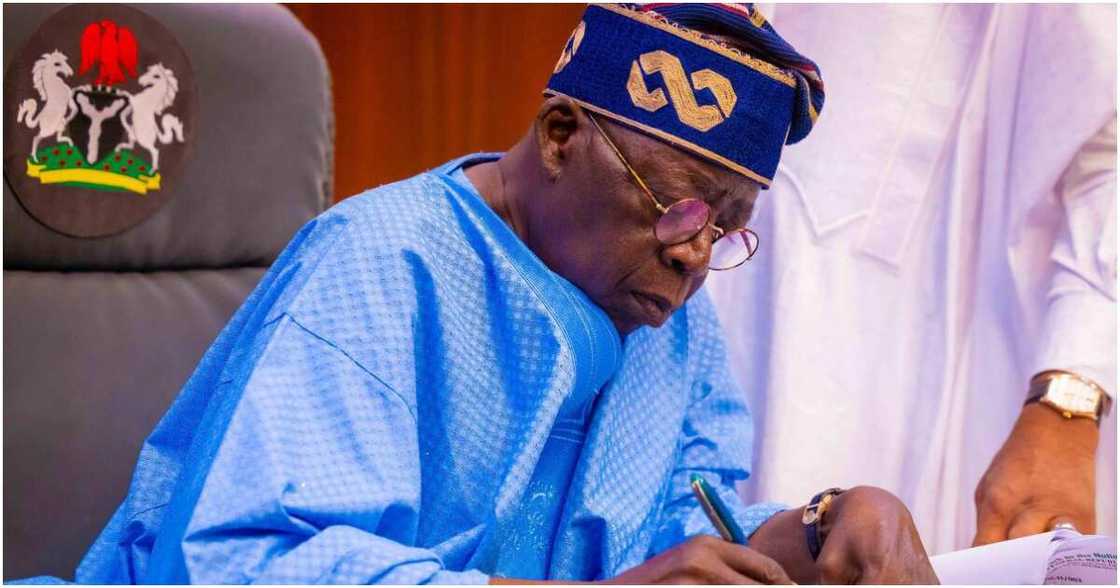
Source: Facebook
2. Dwindling economy
The president and Nigerians are worried about the current state of the economy which has resulted in harsh realities in the polity.
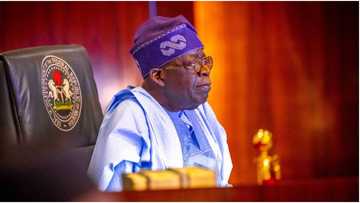
Read also
From N197 to N617: Video of Tinubu campaigning to crash fuel price resurfaces online amid hike
Not even a month after Nigerian President Bola Ahmed Tinubu’s inauguration on 29 May, he’d carried out major economic reforms advocated for by public analysts and international financial institutions.
There are however deep structural issues to be addressed before Nigeria’s economy can deliver prosperity for Nigerians. The reforms also mustn’t come at the cost of citizens’ well-being or the rule of law.
Tinubu inherited a sputtering Nigerian economy, with gross domestic product (GDP) growth rates for 2022 at 3.1 percent and for the first quarter of 2023 at 2.31 percent. The budget deficit has risen by 370.54 percent from 2016 to 2023, and the cost of debt servicing has exceeded public revenues as public debt has grown tenfold in a decade. Total public debt as of June 2013 was N7.93 trillion. It’s now at around N77 trillion.
These, however, as well as insecurity, have contributed to higher food prices, while 63 percent of the country lives in multidimensional poverty. The unemployment rate was 33.3 percent in 2020 and KPMG estimates this to climb to 40.6 percent this year.
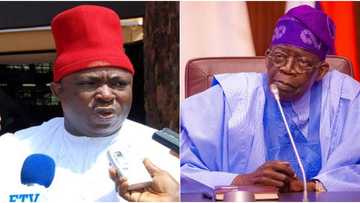
Read also
President Tinubu’s ministerial list fails to surface at Senate, southeast senator Umeh reacts
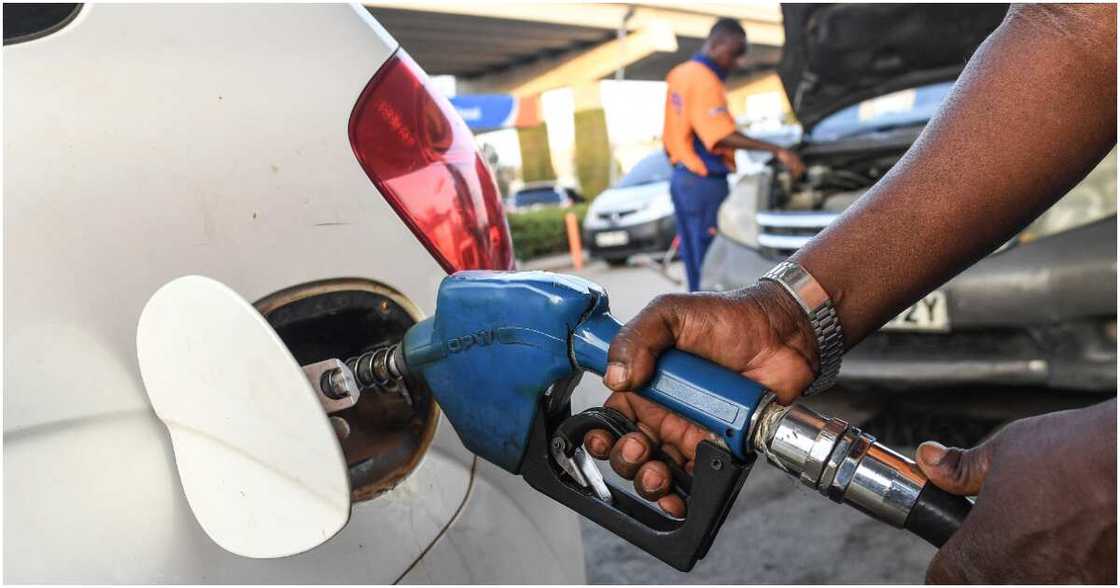
Source: Facebook
3. Petrol price hike
The recent petrol price hike occasioned by the fuel subsidy removal is another major issue hanging on the neck of the federal government as this has influenced to a large extent the cost price of goods and the hike in transportation fare.
Although the Tinubu administration had earlier proposed to transfer N8,000 to 12 million Nigerian households for six months to cushion the effect of the removal of the petrol subsidy, the plan was later shelved after criticism from Nigerians.
This has however led to more debate in the polity as some prominent personalities are describing the FG's cash transfer as a scam and others who supported the move, noted that the N8,000 will go a long way for some families.
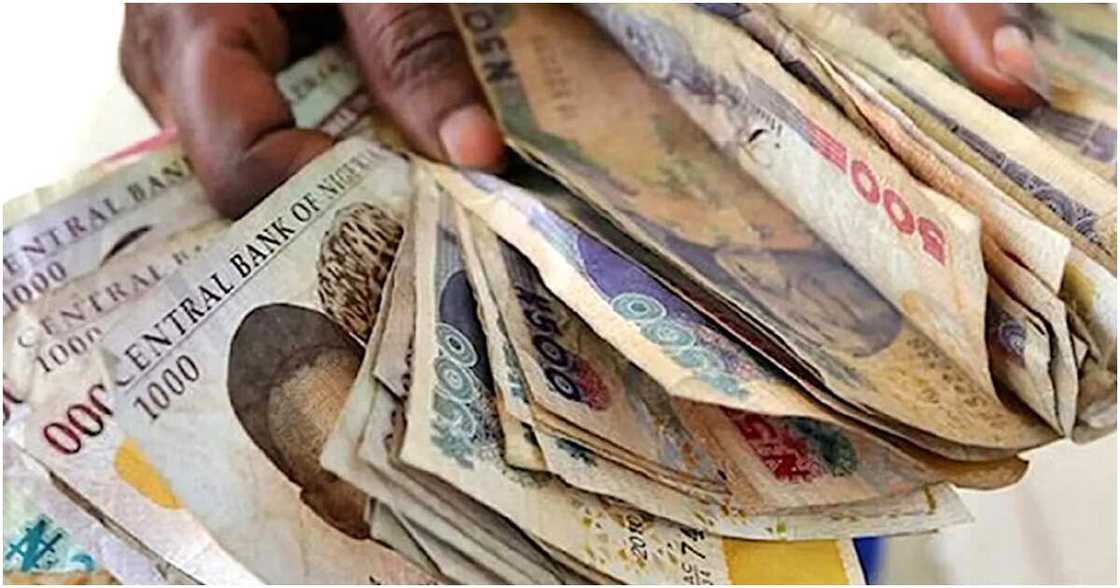
Source: Facebook
4. Naira's biggest fall
The current administration's recent policy regarding the nation's currency has however not proven to be effective as the transition from one system to the other seems to suffocate the naira as it has collapsed against other foreign currencies which has led to the increment in the cost of some major goods imported into the country.
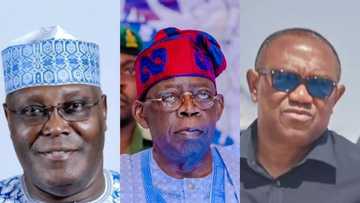
Read also
N500bn Palliative: Tinubu giving LP, PDP, EU others opportunity to attack, says ethnic leaders
Tinubu is also keeping his promise to ‘float’ the naira. Under former CBN governor Godwin Emefiele, the official exchange rate from naira to dollars was mostly fixed, rather than determined by market forces. The CBN however couldn’t meet the demand for dollars at this rate, contributing to a thriving forex black market and dampening investor confidence.
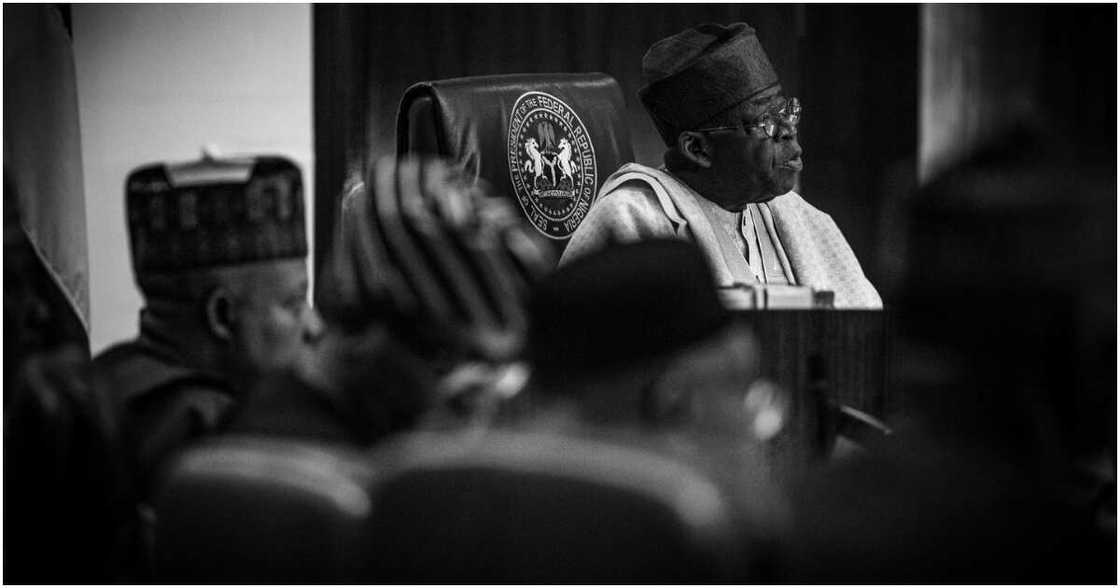
Source: Facebook
Conclusion and the way forward
The petrol subsidies strained Nigeria’s public accounts, contributing to a situation where higher global oil prices hurt rather than help the economy. Removing them should free up public resources for allocation to growth and recovery. But it has raised the petrol price by 200 percent, leading to rising inflation and poverty in the land.
According to the World Bank, subsidy reforms could push seven million more Nigerians into poverty.
With the current situation, it is obvious there was no consultation in place before these policies were made.
But Nigerians and some experts have called on the federal government to go back to its drawing board and do the needful as it is just too early for Nigerians to be groaning over key issues which should take shape in the country at a gradual phase not at the early stages of Tinubu's administration.
If nothing is done in the month's ahead, Nigerians might take to protest and demand the resignation of President Tinubu on the stand that he cannot fix the country as promised.
Meeting Buhari in London, Sallah in Lagos and 4 other key defining moments of Tinubu’s 4th week in office
It was indeed a defining week for Asiwaju Bola Ahmed Tinubu as he completed his one month in office as Nigeria's 16th president.
Mixed reactions trailed the review of Tinubu's first four weeks in office following his dramatic yet active moves that shake major sectors of the country.
While some commended the president for his recent decisions and actions that remodeled governance in the polity, others described his style of leadership so far as "expected" as they await the renewed hope the current administration promised the people of Nigeria.
Source: Legit.ng


